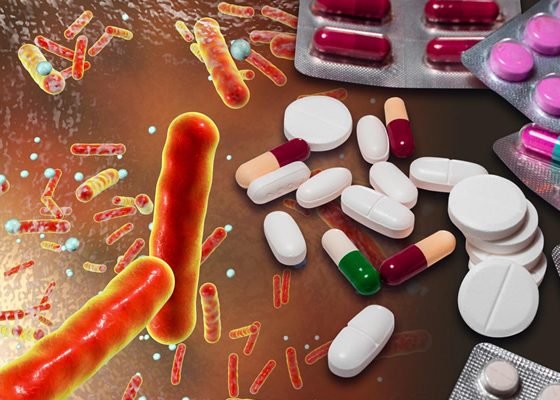Proper nutrition is of paramount importance for athletic performance. Athletes require a well-balanced diet to fuel their bodies, optimize recovery, and achieve their full potential. Whether you’re a professional athlete or a weekend warrior, here are some key reasons why proper nutrition is essential for athletic success:
- Energy and Endurance: Carbohydrates are the body’s primary source of energy. Consuming an adequate amount of carbohydrates provides the fuel necessary for sustained endurance during training and competition. Without sufficient carbs, athletes can experience fatigue and decreased performance.
- Muscle Growth and Repair: Protein is crucial for building and repairing muscle tissue. Engaging in regular physical activity, especially strength training, increases the demand for protein. Adequate protein intake aids in muscle recovery and growth.
- Hydration: Dehydration can lead to a significant decline in athletic performance. Proper hydration helps maintain body temperature and supports essential bodily functions. Athletes should drink water regularly and consider sports drinks for longer, more intense workouts.
- Vitamins and Minerals: Nutrient-rich foods provide essential vitamins and minerals necessary for various bodily functions. These micronutrients play a crucial role in energy metabolism, oxygen transport, and the functioning of muscles and nerves.
- Body Composition: Maintaining an ideal body composition, which includes a healthy balance of muscle and fat, is essential for athletic performance. Proper nutrition helps athletes achieve and maintain their ideal weight, which can affect speed, agility, and overall performance.
- Immune System Support: Intense training can weaken the immune system, making athletes more susceptible to illness. A well-rounded diet with adequate vitamins, minerals, and antioxidants can help boost immune function and reduce the risk of illness or injury.
- Mental Focus and Cognitive Function: Nutrition not only affects physical performance but also mental clarity and focus. Adequate nutrient intake, especially omega-3 fatty acids and antioxidants, can support cognitive function and help athletes make better decisions during competition.
- Recovery: The body needs the right nutrients to recover after exercise. Proper nutrition, including carbohydrates and protein, helps replenish glycogen stores, repair damaged muscles, and reduce post-exercise soreness.
- Injury Prevention: A balanced diet with a variety of nutrients can help maintain strong bones, joints, and connective tissues, reducing the risk of injury. Nutrients like calcium, vitamin D, and collagen can be especially important in this regard.
- Individualized Nutrition: Athletes have unique nutritional needs based on their sport, training intensity, body type, and goals. Working with a sports nutritionist can help develop a personalized plan to optimize performance.
Proper nutrition is the cornerstone of athletic success. Athletes must pay close attention to what they eat and drink to ensure they have the energy, strength, and endurance needed to perform at their best. Whether you’re a competitive athlete or someone who simply enjoys physical activity, a balanced and individualized diet can make a significant difference in your overall performance and well-being.
Why the importance of proper nutrition for athletic performance?
- Optimal Energy Levels: Carbohydrates are a primary energy source, especially during endurance activities. When you consume carbohydrates, your body converts them into glucose, which provides the necessary fuel for muscles and the brain. Low-carb diets can lead to fatigue, reduced stamina, and decreased overall performance. Proper nutrition ensures you have an adequate carbohydrate reserve to sustain your energy levels throughout a workout or competition.
- Macronutrient Balance: A well-rounded diet includes a balance of macronutrients: carbohydrates, proteins, and fats. Proteins support muscle growth and repair, while fats are essential for overall health and act as an energy source during longer, low-intensity activities. Athletes must find the right balance of these macronutrients to optimize their performance based on the type of sport and training regimen.
- Timing and Pre-Workout Fuel: Eating at the right time is crucial for athletic performance. Consuming a balanced meal a few hours before exercise provides sustained energy. Additionally, a small, easily digestible snack shortly before a workout can top up your energy levels, ensuring you’re adequately fueled.
- Post-Workout Recovery: After exercise, your body needs nutrients to recover. Protein is vital for muscle repair, while carbohydrates help replenish glycogen stores, which are depleted during exercise. A well-considered post-workout meal or snack can accelerate recovery and reduce the risk of muscle soreness.
- Body Composition and Weight Management: Proper nutrition helps athletes maintain their ideal body weight and composition. This is crucial for sports where power-to-weight ratio is essential, such as in gymnastics or competitive cycling. Achieving and maintaining an ideal body composition can lead to improved speed, agility, and power-to-weight ratios, giving athletes a competitive edge.
- Adequate Hydration: Dehydration can significantly impair athletic performance. Proper hydration is essential for maintaining the body’s temperature, aiding digestion, and transporting nutrients and oxygen to muscles. Athletes should pay close attention to their fluid intake, especially in hot or humid conditions.
- Micronutrient Support: Vitamins and minerals are often referred to as micronutrients, but they play a critical role in overall health and athletic performance. For example, iron is essential for oxygen transport, calcium is necessary for bone health, and antioxidants like vitamin C and E protect against oxidative stress. A varied diet rich in fruits, vegetables, and whole grains ensures a good supply of these micronutrients.
- Injury Prevention: Proper nutrition supports injury prevention. Nutrients like collagen, which is found in bone broth, can enhance joint and connective tissue health. Strong bones and tissues are less prone to injuries, and this is particularly important for athletes involved in high-impact sports.
- Mental Resilience: Nutrition not only impacts the body but also the mind. A balanced diet can improve mental clarity and focus, enhancing an athlete’s decision-making abilities during competition. Foods rich in omega-3 fatty acids, like fatty fish, can support brain health and cognitive function.
- Individualized Plans: Athletes have unique nutritional requirements based on their sport, training intensity, and personal goals. Working with a sports nutritionist can help create an individualized plan that takes into account these factors, ensuring that the athlete’s specific needs are met.
In summary, the importance of proper nutrition for athletic performance cannot be overstated. Athletes need to fuel their bodies optimally to maximize their potential, whether it’s for strength, endurance, agility, or mental resilience. A thoughtful, balanced, and individualized approach to nutrition can be the key to achieving peak performance and maintaining long-term health in the world of sports.









